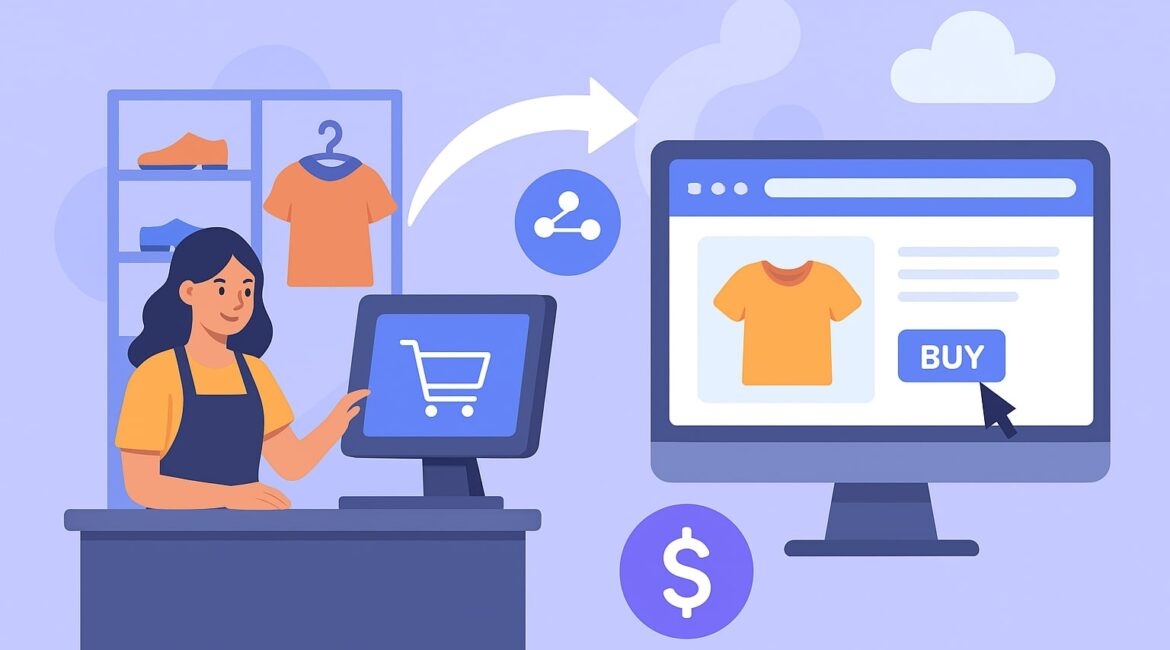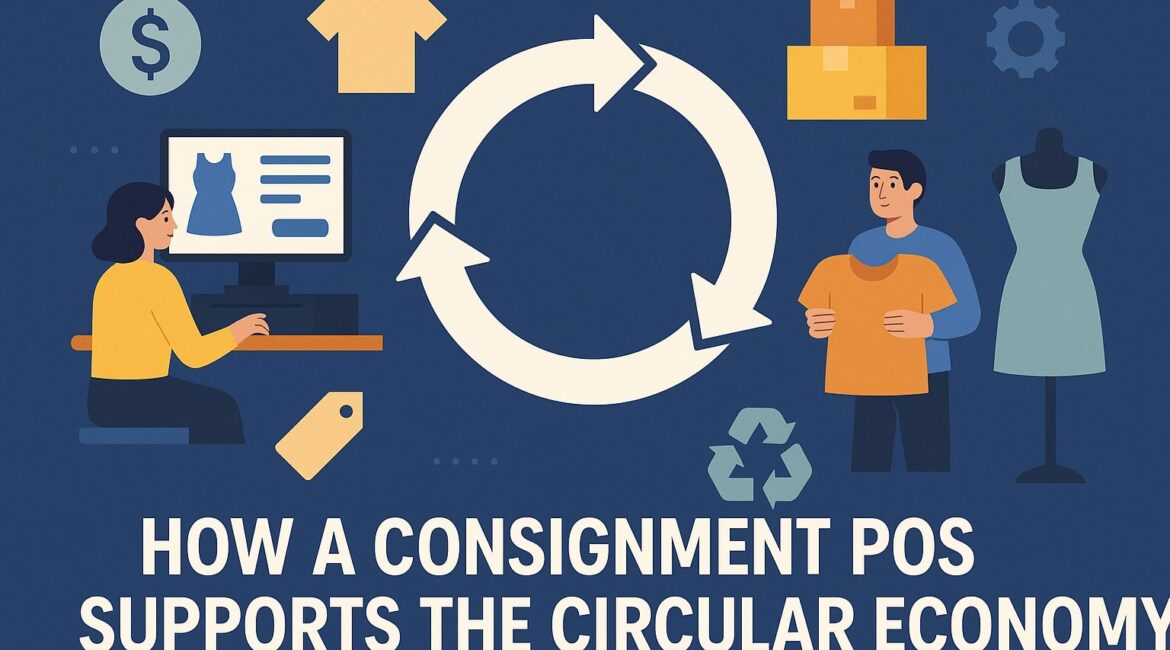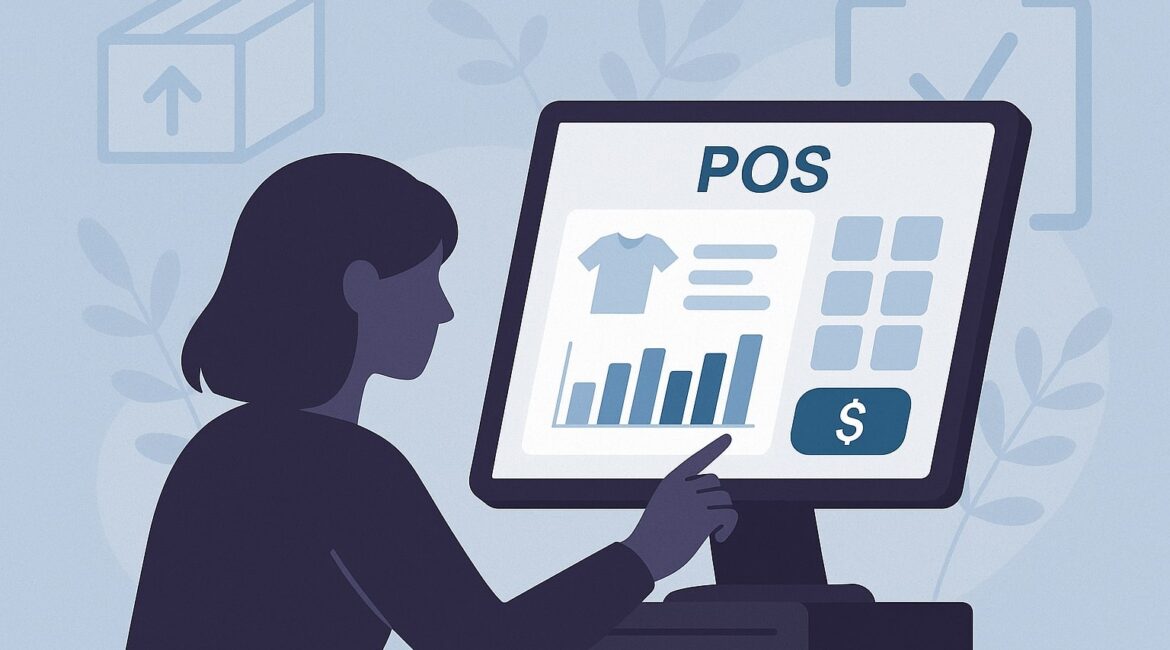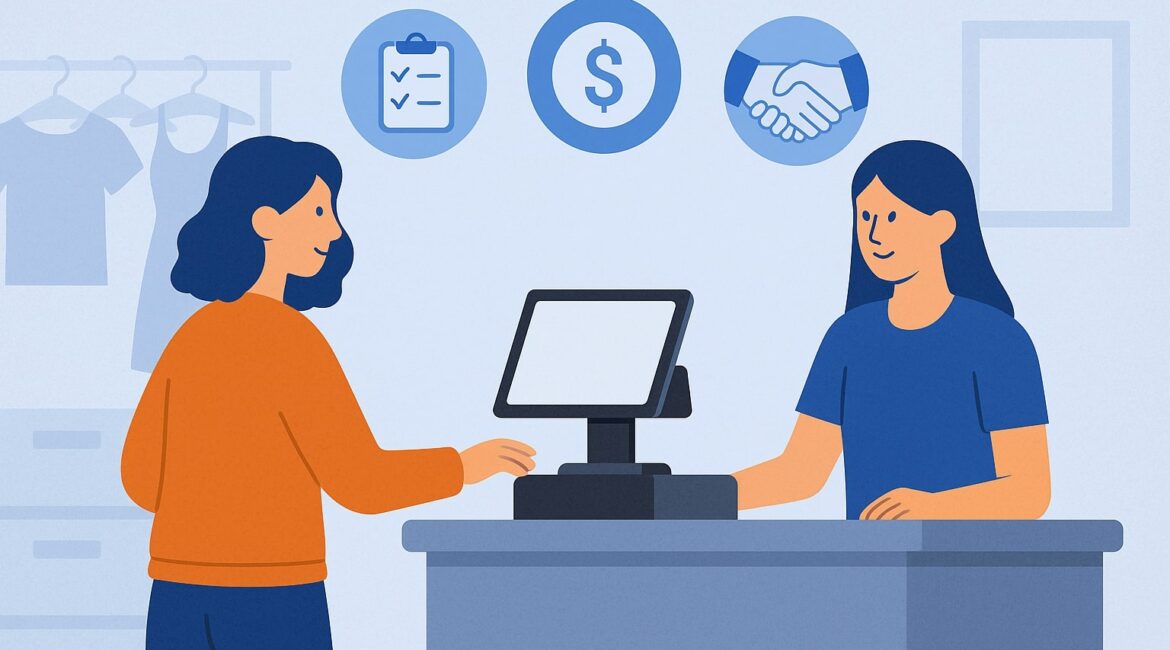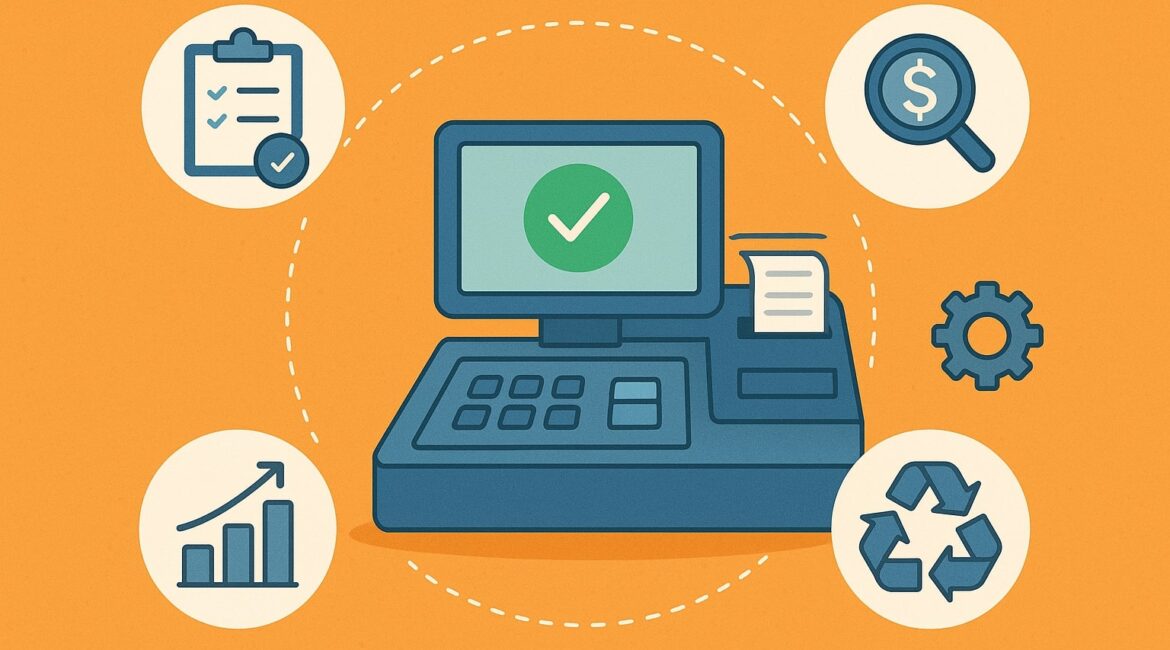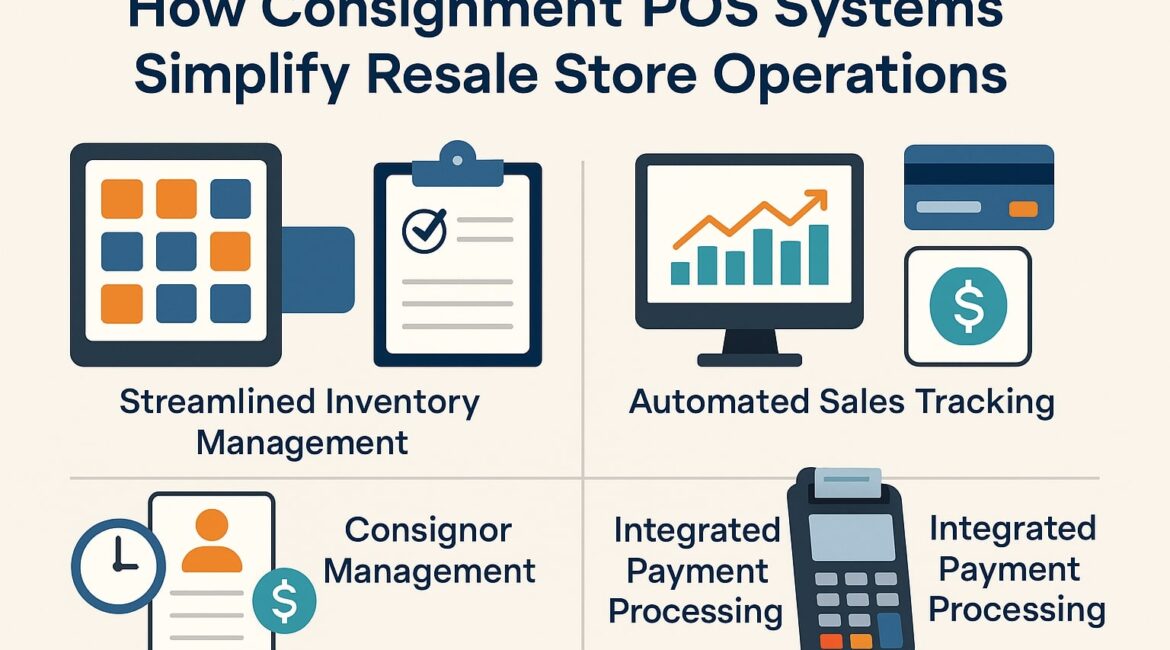Small consignment and resale shops are increasingly selling both in-store and online to reach more customers and boost revenue. Integrating your point-of-sale (POS) system with an eCommerce platform streamlines operations: one system manages inventory, sales, and consignor payouts across channels. With the second-hand market booming (global resale eCommerce was ~$38.5B...
Consignment Software Comparison: Shopify vs Square vs Others
Consignment shops and resale boutiques need systems to track inventory, consignors, and payouts. Running a consignment store means juggling inventory and handling vendor commissions. Modern POS and consignment software streamline sales tracking, inventory management, and consignor payouts. Solutions range from cloud-based platforms (Shopify, Square, Lightspeed) to dedicated consignment systems (Ricochet,...
How a Consignment POS Supports the Circular Economy
In a circular economy, products are kept in use and waste is minimized. Consignment retail embodies this model: it gives pre-owned items a second life, extending product lifespans instead of sending goods to landfill. A specialized consignment point-of-sale (POS) system helps track each unique item, manage consignor payouts, and automate...
Using Your Consignment POS Data to Boost Sales and Engage Customers
Point-of-sale (POS) systems in consignment stores collect a wealth of data on every transaction—sales revenue, inventory movement, customer details, and consignor activity. By analyzing this data, store owners gain clear insights into which items and categories are popular, customer buying patterns, and operational efficiency. Rather than relying on guesswork, data-driven...
Using Your Consignment POS for Better Inventory Management
Consignment inventory is a setup where a retailer sells goods it does not yet own – the supplier keeps ownership until each item sells. This means stores can offer more products without tying up capital, but tracking stock and payments becomes complex. A POS (point-of-sale) system combines hardware (register, scanner,...
How Your Consignment POS Can Simplify Consignor Payouts and Build Trust
Consignment shops sell goods on behalf of individual consignors and split each sale according to agreed commissions. A consignment POS (point-of-sale) is specialized software for this model. It tracks every item by consignor, applies preset commission rules, and automates the payout process. Unlike a generic cash register, a consignment POS...
5 Ways a Consignment POS System Streamlines Your Business
Consignment and resale stores sell unique, one-of-a-kind items on behalf of consignors. Each piece must be tagged, tracked, and linked to its owner until sold. The resale industry is booming – over 25,000 U.S. consignment and thrift shops generate roughly $15 billion a year. Keeping such diverse inventory organized can be...
How to Choose the Right Consignment POS Software
Choosing the right point-of-sale (POS) system is crucial for consignment and resale store owners. A consignment POS is specifically designed to handle the unique needs of stores that sell items on behalf of others. It tracks each item by its original owner, manages consignor payouts, and generates detailed reports to...
What is a Consignment POS System and Why Do You Need One
Consignment retail is a business model where a store (consignee) sells items on behalf of their owners (consignors). The store takes a cut of each sale, then pays the consignor the remainder. This means the consignor retains ownership until the item is sold. Consignment stores often carry an eclectic mix...
How Consignment POS Systems Simplify Resale Store Operations
In the booming resale and consignment market of the United States, small businesses are turning to technology to streamline their operations. There are tens of thousands of consignment and resale shops in the U.S., and the industry has been growing rapidly – store counts have increased by around 7% annually...
